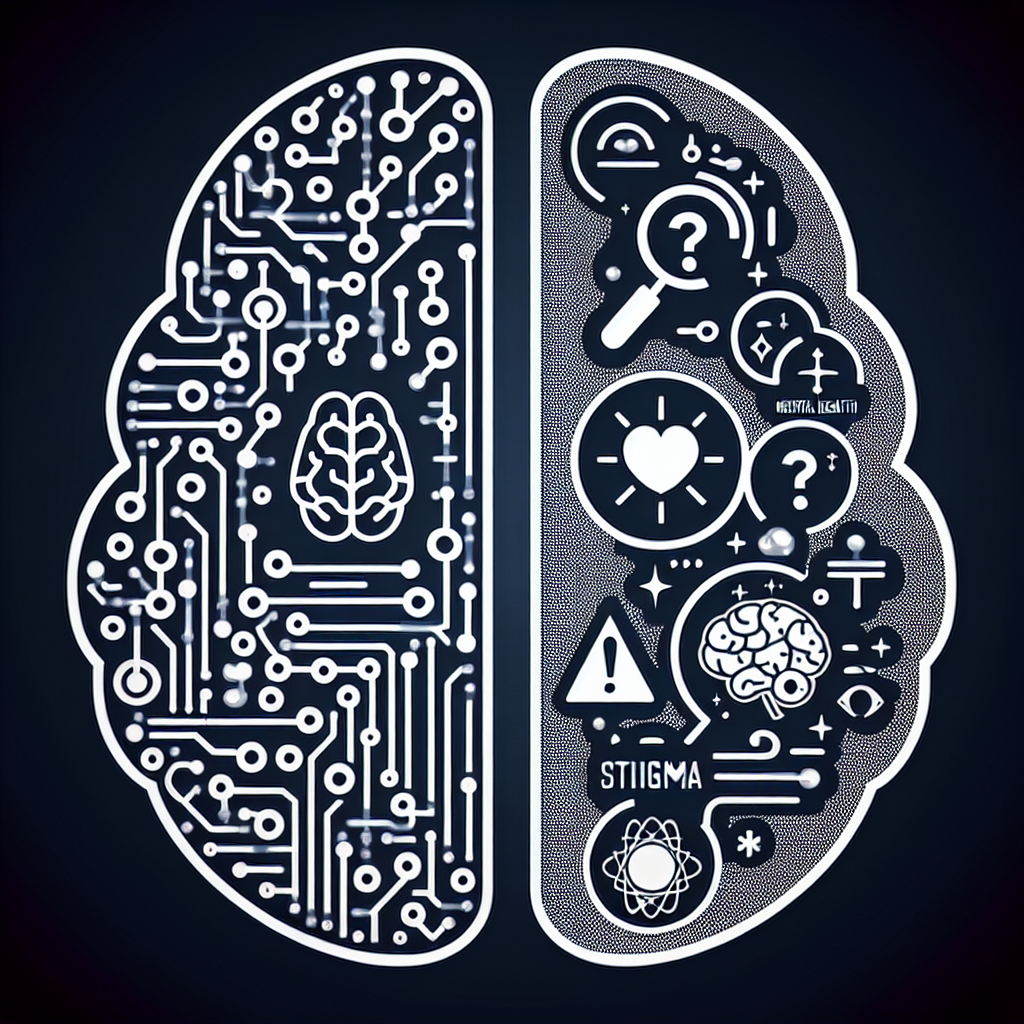Artificial intelligence (AI) has the potential to revolutionize the field of mental health by providing innovative solutions for diagnosis, treatment, and support. However, there are also risks associated with the use of AI in mental health, including the potential for misdiagnoses and stigmatization. In this article, we will explore these risks and discuss the implications for individuals seeking mental health support.
One of the primary risks of using AI in mental health is the potential for misdiagnoses. AI algorithms rely on vast amounts of data to make predictions and recommendations, but these algorithms can be flawed if the data they are trained on is incomplete or biased. For example, if an AI system is trained on data that primarily includes symptoms of depression in middle-aged adults, it may not accurately diagnose depression in younger individuals or those from different cultural backgrounds.
Misdiagnoses can have serious consequences for individuals seeking mental health support. If an AI system incorrectly diagnoses someone with a mental health condition, they may be prescribed the wrong treatment or medication, leading to ineffective or even harmful outcomes. Additionally, misdiagnoses can undermine trust in mental health professionals and deter individuals from seeking help in the future.
Another risk of AI in mental health is the potential for stigmatization. Stigma surrounding mental health is already a significant barrier to seeking support, and the use of AI algorithms to diagnose and treat mental health conditions may exacerbate this stigma. For example, if an individual receives a diagnosis from an AI system, they may be concerned about the privacy and confidentiality of their personal information. They may also worry about the implications of being labeled with a mental health condition by a machine rather than a human professional.
Furthermore, the use of AI in mental health may contribute to the medicalization of normal human emotions and experiences. For example, if an AI system categorizes feelings of sadness or anxiety as symptoms of a mental health disorder, individuals may be more likely to view these emotions as abnormal or pathological, rather than as a natural part of the human experience. This could lead to overdiagnosis and unnecessary treatment, further perpetuating stigma around mental health.
In addition to these risks, there are also ethical concerns surrounding the use of AI in mental health. For example, AI algorithms may not always prioritize the well-being and autonomy of individuals, leading to decisions that are based on efficiency rather than on the best interests of the patient. There are also concerns about the lack of transparency and accountability in AI systems, as well as the potential for bias and discrimination in the data used to train these systems.
Despite these risks, there are also potential benefits to using AI in mental health. For example, AI algorithms can analyze large amounts of data quickly and accurately, allowing for more efficient and personalized treatment plans. AI systems can also provide support and resources to individuals who may not have access to traditional mental health services, such as those in remote or underserved areas.
To mitigate the risks associated with AI in mental health, it is essential to prioritize transparency, accountability, and ethical considerations in the development and implementation of these systems. Mental health professionals should be involved in the design and validation of AI algorithms to ensure they are accurate, reliable, and culturally sensitive. Additionally, individuals should have the opportunity to opt out of using AI in their mental health care and to receive explanations of how AI is being used in their treatment.
In conclusion, while AI has the potential to revolutionize mental health care, there are also risks associated with its use, including the potential for misdiagnoses and stigmatization. It is essential to address these risks through careful consideration of ethical and privacy concerns, as well as by involving mental health professionals in the development and implementation of AI systems. By doing so, we can harness the power of AI to improve mental health outcomes while minimizing harm to individuals seeking support.
FAQs:
Q: Can AI accurately diagnose mental health conditions?
A: AI algorithms have the potential to accurately diagnose mental health conditions, but they are not infallible. It is essential to consider the limitations and biases of AI systems when using them in mental health care.
Q: How can individuals protect their privacy when using AI in mental health?
A: Individuals can protect their privacy by ensuring that the AI system they are using complies with privacy regulations and by being cautious about sharing sensitive information online.
Q: What should mental health professionals do to ensure the ethical use of AI in their practice?
A: Mental health professionals should actively engage in the development and validation of AI systems, prioritize transparency and accountability, and advocate for the rights and well-being of their patients when using AI in mental health care.

